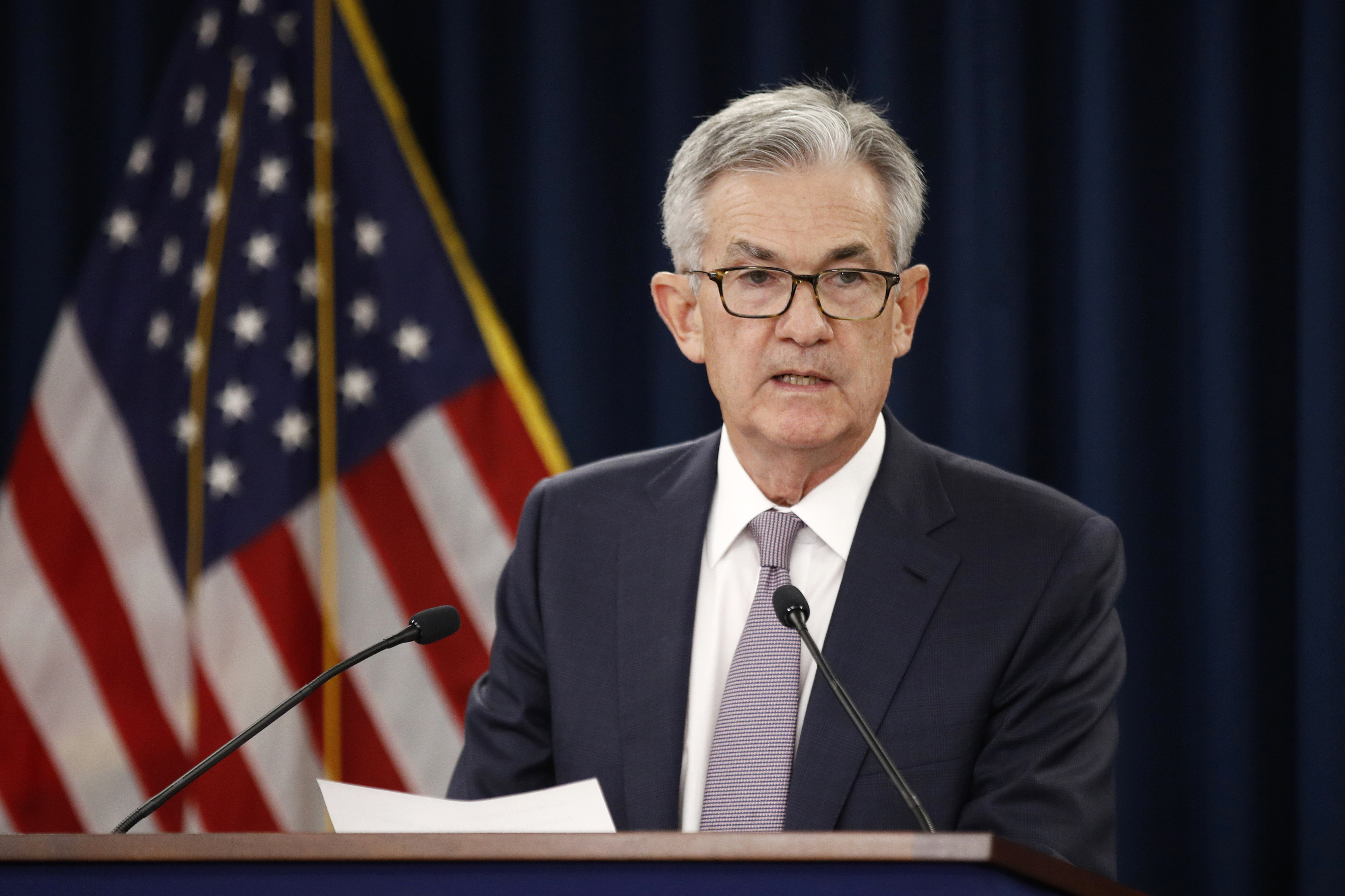Senate confirms Jerome Powell for a second Federal Reserve chair term
Powell was first nominated in 2017 by then-President Donald Trump
Fed's Jerome Powell under building pressure to raise rates: DiMartino Booth
Quill Intelligence LLC. CEO Danielle DiMartino Booth weighs in on record-high inflation and the impact on real wages.
The Senate overwhelmingly confirmed Jerome Powell to a second term as chairman of the Federal Reserve on Thursday, a move that comes at a precarious time for the U.S. central bank as policymakers attempt to tame the hottest inflation in a generation without tipping the economy into a recession.
The Senate voted 80 to 19.
The vote means that Powell will remain in charge of the world's most powerful central bank for another four years and signals underlying trust among lawmakers in the Fed's aggressive monetary policy tightening as it races to catch up with sky-high inflation.
FED EXPECTED TO RAISE RATES 7 TIMES THIS YEAR TO COMBAT INFLATION, BOFA SAYS
A Republican, Powell was first nominated in 2017 by then-President Donald Trump and was nominated for a second term by President Biden in November.
Choosing whom to tap is one of the most consequential economic decisions that Biden has made during his first year in the Oval Office, particularly as the White House seeks to quell growing voter unrest about the state of the U.S. economy amid surging prices for everything from meat to gasoline to clothing.

Federal Reserve Board Chair Jerome Powell testifies before Senate Banking, Housing, and Urban Affairs hearing to examine the Semiannual Monetary Policy Report to Congress, Thursday, July 15, 2021, on Capitol Hill in Washington. ((AP Photo/Jose Luis Magana) / AP Newsroom)
"I’m confident that Chair Powell and Dr. Brainard’s focus on keeping inflation low, prices stable, and delivering full employment will make our economy stronger than ever before," Biden said in a statement at the time. "Together, they also share my deep belief that urgent action is needed to address the economic risks posed by climate change, and stay ahead of emerging risks in our financial system."
Powell, 69, won widespread acclaim on Capitol Hill during the coronavirus pandemic for the quick and unprecedented action that the Fed took to prevent a full-blown financial crisis and has secured support from most Democrats and Republicans.
The Fed chair – one of the most powerful players in Washington, with the ability to dictate the pace of economic growth – is typically nominated and confirmed for a second term, often to reinforce the central bank's independence from politics. Powell's four-year term ended at the beginning of February (he was designated "chair pro tempore" until the Senate voted).
The confirmation comes as the Fed ramps up its inflation fight with a series of moves intended to curb consumer demand: Policymakers voted last week to lift rates by 50 basis points for the first time in two decades and announced they will start reducing the central bank's massive $9 trillion balance sheet, which nearly doubled in size during the pandemic.

Federal Reserve Chair Jerome Powell arrives to speak at a news conference after the Federal Open Market Committee meeting, Wednesday, Dec. 11, 2019, in Washington. ((AP Photo/Jacquelyn Martin) / AP Newsroom)
Collectively, the steps mark the most aggressive tightening of monetary policy in decades as the Fed tries to fight inflation, which surged by 8.3% in April – a figure that is far higher than expected and close to a 40-year high.
Powell has all but promised that similarly sized, half-point rate hikes are on the table at upcoming policy-setting meetings.
GET FOX BUSINESS ON THE GO BY CLICKING HERE
"Inflation is much too high, and we understand the hardship it is causing, and we are moving expeditiously to bring it back down," Powell told reporters last week. "Assuming that economic and financial conditions evolve in line with expectations, there is a broad sense on the committee that additional 50 basis point increases should be on the table at the next couple of meetings."
The biggest question now is whether central bank officials can successfully tame inflation and stabilize prices without triggering an economic recession. Raising the federal funds rate tends to create higher rates on consumers and business loans, which slows the economy by forcing them to cut back on spending.
The Fed's hawkish pivot has exacerbated fears on Wall Street that a downturn is on the horizon, with Fannie Mae, Bank of America and Deutsche Bank all forecasting a recession in the next two years.
Powell has argued the labor market and consumer demand are strong enough to prevent a downturn.
"It’s a strong economy," he said. "Nothing about it suggests it’s close to or vulnerable to a recession."





















